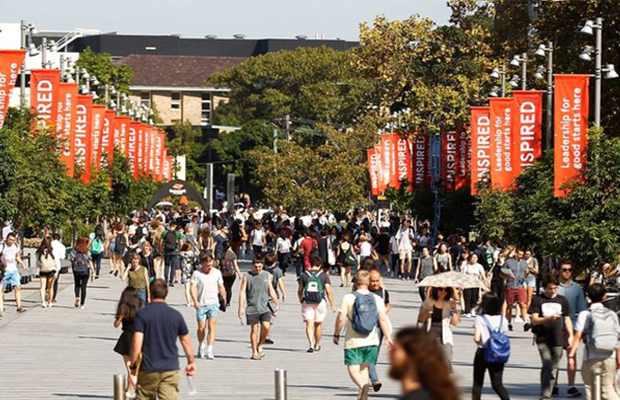In the twilight days of August this year, Hong Kong students took to Eastern Avenue. If mainstream media is to be believed and go unquestioned, that protest triggered an explosion of nationalistic sentiments amongst Chinese students, driving them to patriotic behavior both on and off-campus.
Journalists in wider Australian society have leaned to one side in attempting to portray Chinese students at Australian universities as the “brainwashed” puppets of the Chinese government, without independent thinking, hopelessly victimised by propaganda and made into passive instruments of a national agenda.
But employing a reductive “brainwashed” label as the only basis for understanding the nationalistic behaviors of Chinese students is hardly new for western media. However, sadly, it reflects the ignorance of some Western journalists (if not most). Most have willingly enlisted to one side of the story with little literacy of counter narratives.
It is certainly true that China turned to nationalism and launched an extensive patriotic education campaign from the early 1990s. During this period, Beijing emphasised China’s ‘miserable’ past owing to its encounter with Western colonialism and then imperial Japanese militarism. The state propagated this sense of victimisation, and, in turn, emphasised the vital role of the CCP in liberating the nation from foreign hands and achieving the great rejuvenation of it. Simply put, Chinese nationalism is a product of ‘the political use of history’.
However, the minds of these journalists are constrained by pre-existing political givens. They adhere to the political parameters of traditions entrenched in western society, politicising Chinese students, and reinterpreting those political traditions as deep cultural resources for apolitical struggle for the so-called universal value. Current scholarship indicates that the expression of nationalism amongst overseas Chinese students is authentically based on independent thinking. Nationalism emerged in a bottom-up way, often in direct response to real-world events. This process, more organic than that portrayed in current media, was not a feature of a public relations campaign orchestrated by the central government.
Alongside the above point, the expression of nationalism by Chinese students is more complicated than western journalists have assumed. It includes very different — or even contradictory — aspects which are contingent on who is stimulating that expression in a specific case and the political purposes of that source. The role of Chinese political elites in instrumentalising student nationalism only explains part of the overall picture.
Nationalism takes a far more liberal form amongst overseas Chinese students. Chinese students feel they have a moral duty to support and defend the rights of their state in the world of nation-states, whilst concurrently pursuing liberal values. For example, when Beijing banned public discussion of hot-button social issues from the internet, like the “kindergarten abuse” scandal where Chinese students openly expressed their dissatisfaction with the government’s decision.
The social origins of nationalism are also related to a much more recent trend: the spontaneous eruption of Chinese students living and studying overseas. In high-pressure campus environments which are hardly short of racism, academic pressures, high-cost living and unfairness on campus, stronger incentives are generated for students to voice their opinions unscrupulously in the name of patriotism and national identity.
When Australian journalists blame Chinese nationalism, an important but typically neglected question is whether the Australian government, media and society have had a role in fueling Chinese nationalism. Australian society should not oversimplify the origin of nationalism in Chinese students’, but see these expressions as a process in which Chinese students learn their self-identity, emotional and social needs and confront difficulties on campus or wider society. In shifting the dialogue around the nationalism of overseas Chinese students, the Australian Government can avoid mistakes that might provoke a confrontation by misperceiving students as agents of the Chinese Government or violators of campus freedom and democracy.
The current pre-assumed understanding of Chinese students only fuels Chinese nationalism and student suspicions of Australia. It justifies nationalistic behavior and sentiment.
The current understanding of Chinese students nationalism held by Australian journalists misreads its origins by simply attributing it to Beijing’s political use of history.
As Hong Kong political scientist Simon Shen noticed, ‘Attention should be given here to the fact that most discussion on Chinese nationalism made little attempts to distinguish its different intrinsic meanings’.
For now, however, if Chinese students truly want respect from Australian society, they must chain or at least contain their nationalistic sentiment to less violative forms.
Ye Xue is currently studying towards a PhD in International Relations. His research focuses on self-esteem in world politics and China’s foreign policy.





